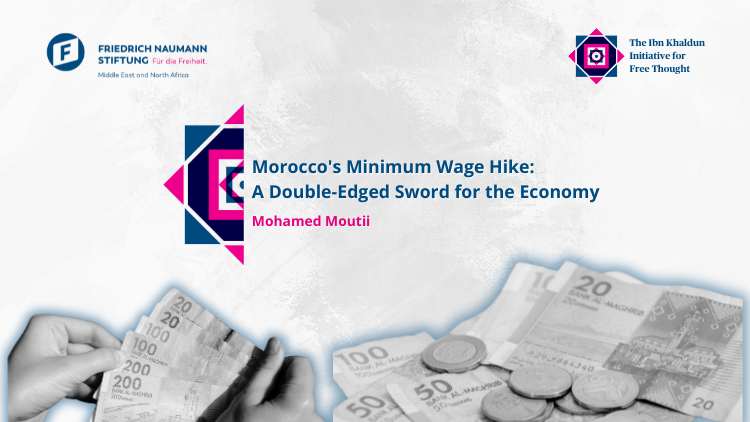Ibn Khaldun - Policy Brief
Morocco's Minimum Wage Hike

In April 2024, the Moroccan government announced a 10% increase in the national minimum wage, a policy move that has triggered wide-ranging reactions across the economic and political spectrum. While the intent behind the decision is clear—improving living standards and addressing social unrest—it also raises important questions about the policy’s broader economic implications. Can Morocco afford a significant wage hike without risking job losses, reduced competitiveness, and an expanding informal economy?
For many Moroccan workers, this increase signals long-overdue relief in the face of rising inflation and declining purchasing power. The new wage policy comes after extensive negotiations with major trade unions such as UMT and UGTM and builds on a series of wage increases dating back to the early 2000s. Yet, critics caution that such top-down decisions, particularly in a developing economy with structural labor market weaknesses, could inadvertently hurt the very groups they aim to protect.
The issue, as explored in the full policy brief, is not simply about raising wages—it’s about understanding how Morocco’s labor market functions. Despite progress in infrastructure, investment reforms, and economic openness, Morocco’s job market remains constrained by inefficiencies. High youth unemployment, low female labor force participation, and a growing informal sector indicate that the real problem lies deeper than wage levels.
The Ibn Khaldun - Policy Brief by "Mohamed Moutii" brief examines how high labor costs can limit business competitiveness—especially in labor-intensive industries like textiles and agriculture—potentially pushing businesses to relocate or operate informally. It also considers whether a one-size-fits-all wage approach makes sense for a country with vast regional disparities.
To explore the full analysis, download the complete policy brief here:
